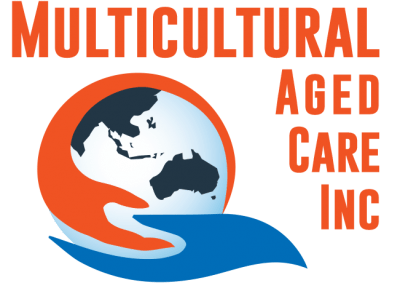 MEDIA RELEASE
MEDIA RELEASE
Thursday June 15, 2017
Multicultural Aged Care Inc (MAC) has recently become a registered NDIS provider in an effort to fill the gap being left by the lack of culturally-tailored service provisions for local multicultural people with a disability. On June 22, 2017, MAC will officially unveil a new, all-inclusive brand to embrace their new client base.
MAC has been servicing aged care clients in Inner West, South West and South East Sydney for over two decades and
knows firsthand what multicultural clients and their families are looking for.“Primarily what we hear from our clients and their families is that they put off searching for external care providers
“Primarily what we hear from our clients and their families is that they put off searching for external care providers
because they did not trust a provider could meet their cultural needs,” says MAC CEO, Dr Rosy Walia.
“Recognising individual cultural identity as equal-to specific care needs is integral to ensuring those from multicultural
communities receive care which makes sense to their lifestyles and enhances their life outcomes.”MAC has experienced significant organic growth over the last decade,
MAC has experienced significant organic growth over the last decade, Dr Walia puts it down to their service model:
matching culturally and linguistically appropriate, bilingual care staff with clients.
“Being able to comfortably communicate with your care giver and connect through understanding cultural customs,
celebrations and needs, is something that hasn’t largely been considered a priority. We’ve found in-home care that isn’t
culturally integrated doesn’t meet the entire sphere of needs for multicultural people.”
“This is particularly prevalent in the disability sector. Disability awareness has been pushed up on the agenda, meaning
there is a greater acceptance and understanding about people with a disability. What is missing is an understanding that,
regardless of your abilities, many multicultural people with a disability and their families recognise their individual culture
as equally important as their disability.”
It is known that people from multicultural backgrounds experience considerable difficulties in accessing support services,
including disability support. At the end of June 2015, the number of multicultural participants with NDIS Intensive Family
Support was only 1,211 out of a total of 30,281.*
MAC caters to people from over 40 different language groups and has over 60 qualified staff who actively champion
culturally-matched care and helps connect multicultural people to services they may have otherwise not accessed.
“Our message to local multicultural people with a disability and their families is: we hear you, we understand you. We are
excited to launch our new branding and hope it means there is a greater uptake from local multicultural families who may
be struggling trying to meet care needs by themselves, or just generally finding program language barriers an issue,” says
Dr Walia.
Multicultural Aged Care will officially unveil their new branding next week at the grandest event the non-profit has ever
put on.
The organisation welcomes and encourages attendance from the media and people from the local community to hear
from relevant industry speakers and see how culturally-tailored disability care has the power to effectively help local
multicultural communities.
EVENT DETAILS
Date: Thursday June 22 2017
Time: 3pm – 4pm
Venue: Playford Community Centre, 3 Mackinder Street Campsie NSW 2194 (up the lift/stairs next to Priceline)
RSVP: Please RSVP by Tuesday June 20th to admin@multiculturalagedcare.org.au
All attendees will be treated to an afternoon tea put on by Peppertree Café and Catering who employ and train
disadvantaged young people in South West Sydney.
-ENDS –
For further information please contact: Dr Rosy Walia | (02) 9718 6199 | www.multiculturalagedcare.org.au
*Data Source: National Disability Insurance Agency Quarterly Report to COAG Disability Reform Council, 30 June 2014 to 31 March 2016.

